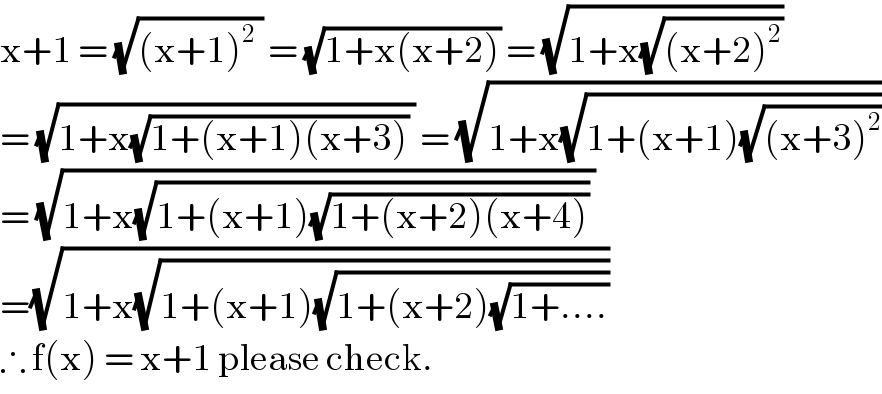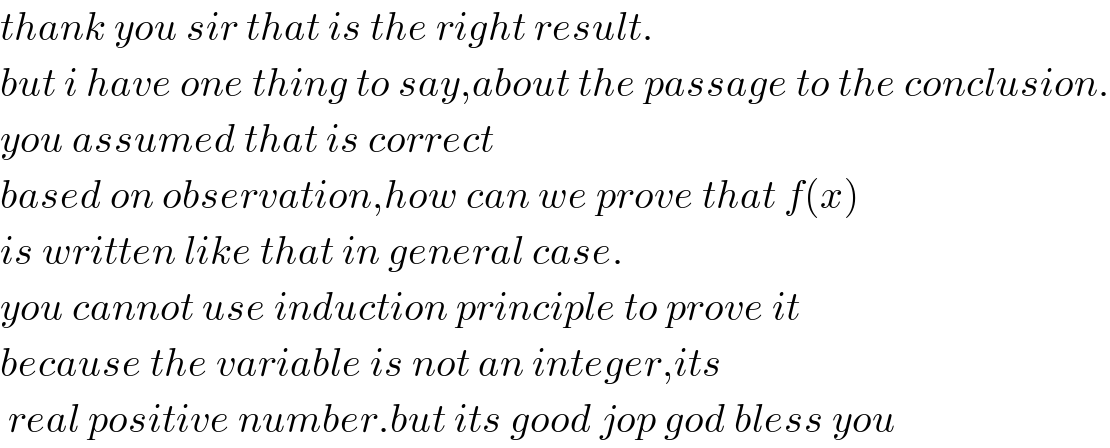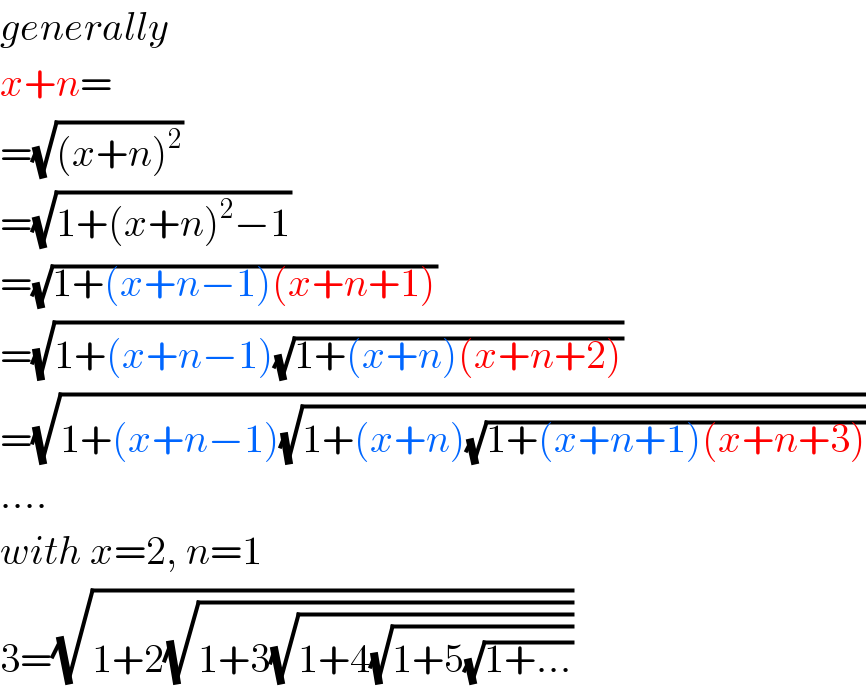
Question and Answers Forum
Question Number 64404 by aliesam last updated on 17/Jul/19

Commented by Prithwish sen last updated on 17/Jul/19

Commented by aliesam last updated on 17/Jul/19

Commented by Prithwish sen last updated on 17/Jul/19

Commented by mr W last updated on 17/Jul/19

